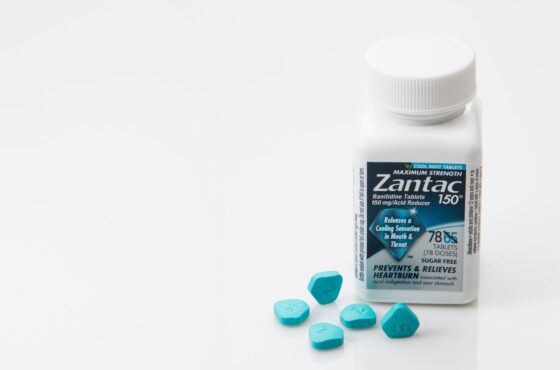
Research suggests Zantac may cause as many as 20 types of cancer including liver, colorectal, stomach, bladder, and breast cancer. Allegations of Zantac causing cancer stem from the concerns that it is contaminated with the dangerous chemical N-nitrosodimethylamine or NDMA. The Food and Drug Administration (FDA) directed all drug manufacturers to withdraw Zantac and its generic equivalent sold as Ranitidine from the market on April 1, 2020.
Liver cancer risk increases with Zantac use. NDMA is known to be toxic to the liver. Exposure to the chemical has caused liver damage in humans and animals. Even small amounts may cause liver damage. Animal testing has shown longer exposures to NDMA to increase the risk of getting cancer. Higher dependence on NDMA resulted in increased liver tumors and decreased survival rates for lab rodents.
The World Health Organization (WHO) has linked exposure to large NDMA amounts to increased colorectal cancer risk. Studies have found Zantac to be unstable and capable of generating NDMA levels significantly higher than the FDA’s recommended daily limit of 96 nanograms. A study by researchers from Stanford University found patients who took 150 milligrams of Zantac to have close to 500 times the acceptable daily levels of NDMA in their bodies.
NDMA is usually in higher concentrations in the stomach. According to studies, when Zantac mixes with the sodium nitrite and gastric fluid that stimulate digestion, a large amount of NDMA is produced. Large NDMA amounts are thought to cause stomach cancer.
Several studies have found links between Zantac intake and bladder cancer. A 2016 study found the use of Zantac to increase NDMA in the user’s urinary excretion significantly. The increased NDMA urinary concentrations have been associated with a risk of tumors developing in the bladder.
Anecdotal evidence suggests there might be links between Zantac intake and breast cancer. A study conducted in 2008 showed Zantac to more than double the risk of developing ductal carcinoma in women and men. Ductal carcinoma is the most common form of breast cancer.
Because of its high NDMA levels, Zantac has also been linked to the following cancers:
People who took Zantac and were later diagnosed with cancer may pursue financial compensation. Chicago personal injury attorneys, as well as attorneys and injured patients across the United States, have already filed Zantac cancer lawsuits.